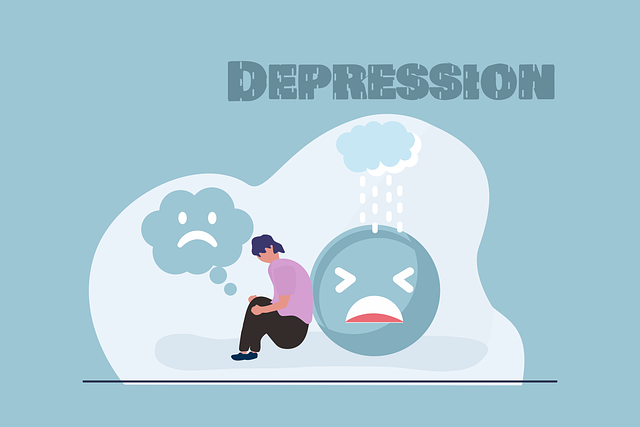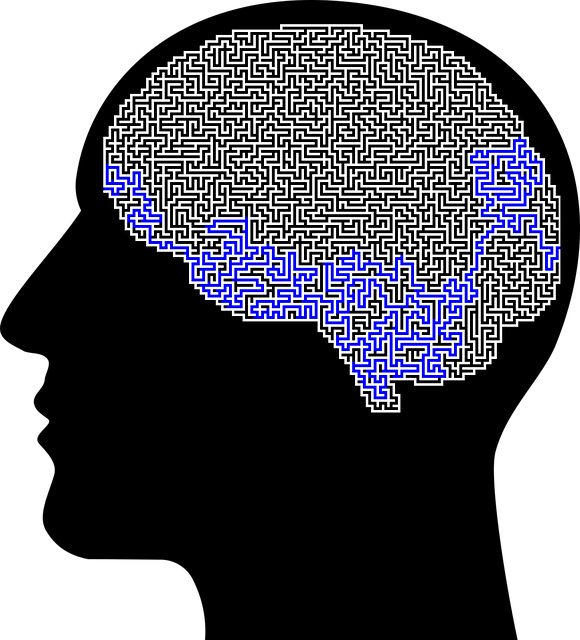Risk assessment is critical in mental health care, especially for managing conditions like Louisville Oppositional Defiance Disorder (LODT). Healthcare providers must analyze patient-specific factors, environmental triggers, and behavioral trends to predict and prevent risks. By enhancing patient education, implementing safety measures, and offering support systems, therapists can build resilience and create secure therapeutic spaces tailored to Louisville's unique needs. Effective risk management involves integrating mental wellness coaching, burnout prevention strategies, Mind Over Matter principles, and evidence-based practices to improve patient outcomes while safeguarding therapist well-being. Public awareness campaigns further reduce stigma and encourage early intervention, contributing to a holistic ecosystem for managing ODD in Louisville.
“In the field of mental health, effective risk management planning is paramount, especially within Louisville Oppositional Defiance Disorder (ODD) therapy settings. This article explores the intricate process of identifying and mitigating risks, offering a comprehensive guide for professionals. We delve into risk assessment techniques tailored to ODD therapy, highlighting potential hazards unique to this environment. Through structured strategies, learn how to develop robust risk management plans, ensuring safe and impactful treatment. Additionally, discover methods for continuous monitoring and adaptability, crucial for navigating the dynamic nature of client care.”
- Understanding Risk Assessment in Mental Health Practice
- Identifying Potential Risks in Louisville ODD Therapy Settings
- Developing a Comprehensive Risk Management Plan
- Implementing Strategies for Safe and Effective Treatment
- Continuous Monitoring and Adaptability in ODD Therapy
Understanding Risk Assessment in Mental Health Practice

Risk assessment is a cornerstone of effective mental health practice, enabling healthcare providers to anticipate and mitigate potential risks within their clinical settings. In the context of Louisville Oppositional Defiance Disorder Therapy (LODT), this process involves meticulously evaluating individual patient factors, environmental influences, and behavioral patterns that could contribute to adverse outcomes. Mental health professionals must be adept at recognizing subtleties in a patient’s presentation, understanding cultural nuances, and incorporating these insights into comprehensive risk assessments.
A robust risk management strategy for mental health professionals encompasses not only identifying vulnerabilities but also fostering resilience. This involves tailored interventions, such as enhancing patient education, implementing safety protocols, and providing support systems that address specific needs. Through ongoing training in healthcare provider cultural competency and the development of mental wellness coaching programs, practitioners can navigate complex cases more effectively, ensuring safer and more positive therapeutic environments for all clients, including those presenting with LODT.
Identifying Potential Risks in Louisville ODD Therapy Settings

In Louisville, Oppositional Defiance Disorder (ODD) therapy settings present unique challenges that require meticulous risk management planning. Mental wellness coaching programs and burnout prevention strategies are essential components in mitigating risks within these environments. Healthcare providers, especially those specializing in ODD therapy, must prioritize emotional well-being promotion techniques to ensure a safe and supportive space for both patients and themselves.
Identifying potential risks involves recognizing the dynamic nature of client interactions and environmental factors specific to Louisville. This may include stress from urban living, access to resources, or cultural influences that could impact therapy sessions. By implementing robust risk management plans, mental health professionals can foster a secure atmosphere, enhance therapeutic outcomes, and minimize the likelihood of adverse events in Louisville ODD therapy settings.
Developing a Comprehensive Risk Management Plan

Developing a comprehensive risk management plan is an integral part of ensuring effective mental health care for patients, especially those dealing with Oppositional Defiance Disorder (ODD) in Louisville or any other setting. This strategic approach involves identifying potential risks and implementing tailored interventions to mitigate them. For ODD therapy, such a plan should incorporate Mind Over Matter Principles, focusing on emotional regulation techniques that empower both the therapist and the client to navigate challenging behaviors constructively.
By integrating these principles into practice, mental health professionals can enhance their ability to manage risk factors associated with ODD, fostering a more supportive environment. Additionally, staying informed through Public Awareness Campaigns Development can further equip therapists with valuable insights and tools to address complex emotional scenarios. This proactive approach not only safeguards the therapist’s well-being but also enhances patient outcomes.
Implementing Strategies for Safe and Effective Treatment

Mental health professionals play a crucial role in helping individuals navigate their mental health journeys. To provide safe and effective treatment, it’s essential to implement strategies that foster a supportive environment. One such strategy is incorporating evidence-based practices tailored to specific conditions like Oppositional Defiance Disorder (ODD) in Louisville. By integrating techniques targeted at ODD, therapists can significantly improve patient outcomes.
Additionally, promoting stress management and positive thinking within the therapeutic setting is vital. This involves teaching clients coping mechanisms for dealing with anxiety and depression, enhancing their ability to prevent relapses. A holistic approach that combines personalized therapy, evidence-based practices, and techniques for stress management and positive thinking ensures a comprehensive and effective treatment experience.
Continuous Monitoring and Adaptability in ODD Therapy

In the dynamic field of mental health care, particularly within Louisville Oppositional Defiance Disorder (ODD) Therapy, continuous monitoring and adaptability are paramount. Effective therapy for ODD requires constant assessment of a patient’s progress and behavior, as symptoms can fluctuate and new challenges may arise. Therapists must be adept at adjusting treatment plans in real-time, incorporating innovative strategies like compassion cultivation practices to enhance self-esteem improvement. This flexible approach not only caters to the evolving needs of each individual but also fosters deeper connections, crucial for successful long-term management.
Public Awareness Campaigns Development plays a supportive role by increasing understanding and reducing stigma associated with ODD, thereby encouraging families to seek help earlier. By integrating these awareness initiatives into risk management planning, mental health professionals can create a holistic ecosystem that not only treats the disorder but also cultivates public support and empathy, ultimately benefitting the well-being of patients navigating the complexities of ODD.
Effective risk management planning is paramount for mental health professionals, especially in settings like Louisville Oppositional Defiance Disorder (ODD) therapy. By understanding risk assessment, identifying specific risks, and developing robust strategies, therapists can ensure safe and effective treatment. A comprehensive plan should include ongoing monitoring and adaptability, allowing professionals to navigate the unique challenges of ODD while prioritizing client well-being. This approach ensures a dynamic, responsive, and ultimately successful therapeutic environment in Louisville and beyond.














